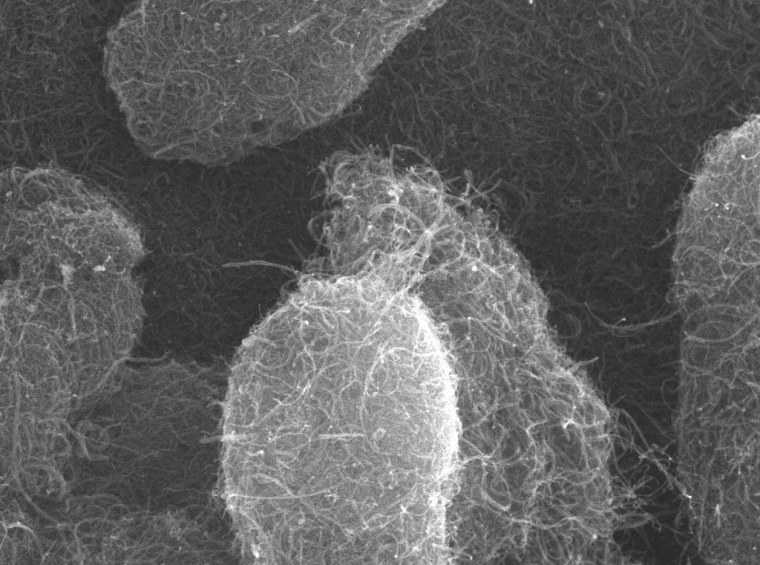Scientists are eyeing carbon nanotubes to clean up municipal water supplies contaminated with water-soluble drugs and other compounds that sneak past common charcoal filters.
The teeny tiny tubes of carbon are a factor of 1,000 more effective at filtering out the aromatic molecules in water-soluble drugs, Thilo Hofmann, who heads up the department of environmental geosciences at the University of Vienna, explained to me in an email on Friday.
This trait makes carbon nanotubes ideal for inclusion in "filtration membranes for water treatment … the technique for all major league cities," he said.
However, safety concerns about carbon nanotubes abound. One study, for example, found that longer threads of the stuff mimic the toxic qualities of asbestos. Another study found that common-sized tubes can get into the lungs and increase the risk of developing cancer.
Such risks have prompted Hofmann and his colleagues to cautiously probe the potential of carbon nanotubes for water filtration.
A test on the interaction between the tubes and polycyclic aromatic hydrocarbons — a class of organic contaminants — reveal a "high potential" for use in treating municipal water supplies, Hofmann said.
Key among the findings, the team notes, is that at concentrations likely to occur in the environment, the tubes removed 13 tested PAHs from contaminated water, allaying concerns that the pollutants would compete with each other and some would not attach to the tubes, rendering the technology ineffective.
The results were published this June in the journal Environmental Science and Technology.
While more research is needed, Hofmann said these results prompt him to keep pursuing the use of carbon nanotubes for water treatment in large cities. In rural areas, he noted, "there is not the same need to filter out pharmaceuticals."
More on carbon nanotubes and water treatment:
Study: Carbon nanotubes mimic asbestos
'Smart' fabric glows in response to allergens
Pharmaceuticals lurking in U.S. drinking water
Sea shells used to clean up heavy metals
is a contributing writer for msnbc.com.
Carbon nanotubes to clean up water supply?
Scientists are eyeing carbon nanotubes to clean up municipal water supplies contaminated with water soluble drugs and other compounds that sneak past common charcoal filters.
